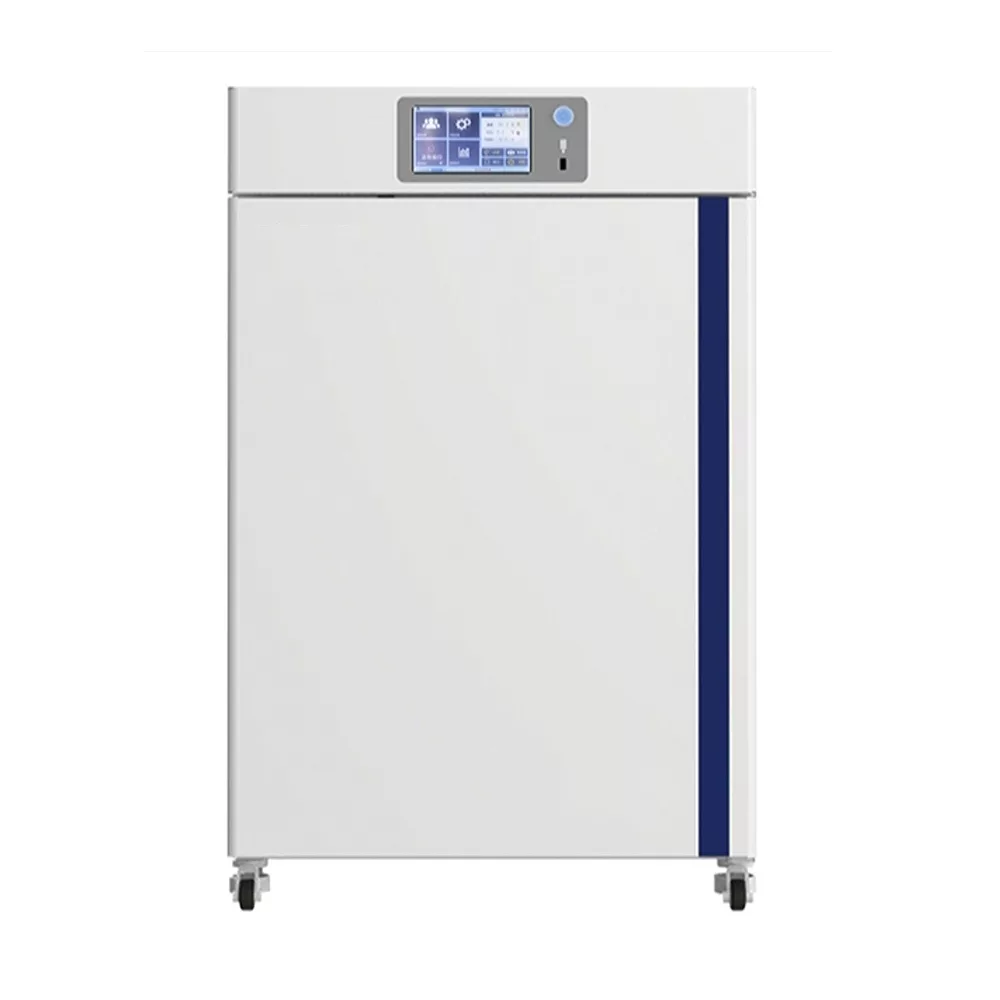Optimize Cell Growth and Research with a High-Performance CO₂ Incubator KCI/160/A
In the fields of cell culture, microbiology, and biomedical research, maintaining an optimal environment for cell growth is crucial. A CO₂ Incubator KCI/160/A plays a vital role in creating and sustaining the ideal conditions for cultivating cells, tissues, and microorganisms. These specialized incubators are designed to precisely control temperature, humidity, and carbon dioxide levels, ensuring that biological samples thrive in a stable environment. Whether you’re conducting cutting-edge research or producing critical pharmaceuticals, a CO₂ incubator is essential for achieving reliable and reproducible results. In this guide, we’ll explore the key features, benefits, and applications of CO₂ incubators, helping you select the right one for your laboratory needs.
What is a CO₂ Incubator?
A CO₂ incubator is a laboratory device used to maintain a controlled environment for the cultivation of cell cultures, tissues, and other biological samples. These incubators regulate key environmental factors, such as temperature, humidity, and CO₂ concentration, to simulate the natural conditions necessary for cell growth. The precise control of CO₂ levels helps maintain the proper pH in culture media, which is essential for optimal cell function and viability.
Key Features of CO₂ Incubators
- Precise CO₂ Control: CO₂ incubators are equipped with advanced sensors and control systems that maintain stable CO₂ levels, typically around 5%, ensuring an ideal pH balance in the culture medium.
- Accurate Temperature Regulation: With precise temperature control, usually around 37°C, these incubators create an optimal environment for cell growth and metabolism.
- High Humidity Levels: To prevent sample desiccation and maintain consistent environmental conditions, CO₂ incubators maintain humidity levels of 95% or higher.
- HEPA Filtration and Sterilization: Many CO₂ incubators feature HEPA filters and automatic sterilization systems, such as UV light or high-temperature decontamination, to prevent contamination and maintain a sterile environment.
- Programmable Settings: Modern CO₂ incubators offer programmable settings, allowing users to customize and automate environmental conditions to match specific experimental protocols.
- Alarm and Monitoring Systems: Equipped with alarms and monitoring systems, these incubators alert users to any deviations in environmental conditions, ensuring sample integrity.
- Durable and Easy-to-Clean Interiors: Typically made from stainless steel or other durable materials, the interiors are designed to be easy to clean and resistant to corrosion, reducing the risk of contamination.
Benefits of Using a CO₂ Incubator KCI/160/A
- Enhanced Cell Viability and Growth: By providing a stable and controlled environment, CO₂ incubators support optimal cell growth, leading to more accurate and reproducible research results.
- Reduced Contamination Risk: Advanced filtration and sterilization systems help minimize the risk of contamination, protecting valuable samples and improving the reliability of experiments.
- Versatile Applications: Suitable for a wide range of cell culture applications, from basic research to pharmaceutical production, making CO₂ incubators indispensable in many laboratories.
- Energy Efficiency: Modern CO₂ incubators are designed to be energy-efficient, reducing operational costs while maintaining precise environmental control.
- User-Friendly Operation: With intuitive controls and programmable settings, CO₂ incubators are easy to use, even for complex experimental protocols, saving time and reducing the potential for errors.
- Compliance with Industry Standards: CO₂ incubators are built to comply with industry standards, ensuring that they meet the rigorous demands of research and production environments.
Applications of CO₂ Incubators
- Cell and Tissue Culture: CO₂ incubators are widely used in cell culture labs for growing and maintaining mammalian cells, which are essential for biomedical research, drug development, and regenerative medicine.
- Microbiological Studies: These incubators are ideal for growing microorganisms, such as bacteria and fungi, in controlled environments, supporting research in microbiology and biotechnology.
- In Vitro Fertilization (IVF): CO₂ incubators provide the precise environmental conditions needed for the successful culture of embryos in IVF clinics, ensuring the best possible outcomes.
- Pharmaceutical Testing and Production: Used in the production and testing of biologics, vaccines, and other pharmaceutical products, CO₂ incubators ensure that cell cultures are grown under optimal conditions.
- Cancer Research: CO₂ incubators play a crucial role in cancer research by providing a controlled environment for growing and studying cancer cells, leading to advancements in treatment and therapy development.
- Stem Cell Research: These incubators support the growth and differentiation of stem cells, which are vital for research into regenerative medicine and developmental biology.
Choosing the Right CO₂ Incubator
When selecting a CO₂ incubator, consider factors such as the size and capacity needed for your laboratory, the level of environmental control required, and any specific features that may be beneficial for your particular application. It’s also important to evaluate the ease of use, energy efficiency, and maintenance requirements of the incubator. Consulting with manufacturers or industry experts can help you find the best model to meet your laboratory’s specific needs.
Conclusion
A CO₂ incubator is a critical investment for any laboratory involved in cell culture, microbiology, or biomedical research. Its ability to provide a stable and controlled environment for cell growth makes it indispensable for ensuring the accuracy, reliability, and success of your experiments. By choosing a high-quality CO₂ incubator, you can enhance your research capabilities, protect your valuable samples, and contribute to groundbreaking discoveries.
For expert advice on selecting the best CO₂ incubator for your laboratory, contact our specialists today.





Reviews
There are no reviews yet.